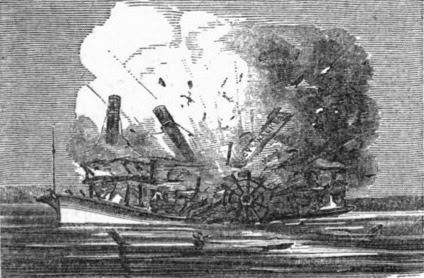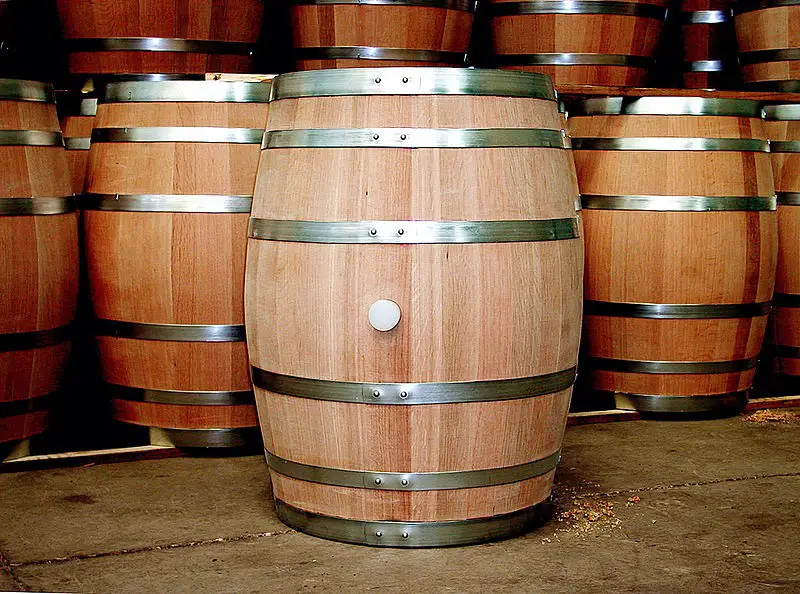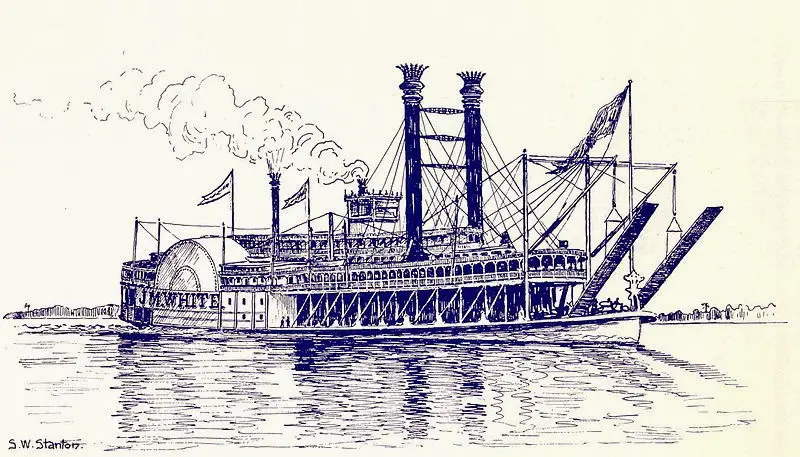 |
| A Mississippi River Paddleboat – Photo by Thegreenj/wikipedia |
During the 1800’s the Mississippi River was a vital part of everyday commerce. It was the Steamboat era and boats of various sizes and shapes transported goods and freight to ports up and down the Mississippi. Many of the words and sayings we use today got their start on the river. Here is just a sampling of a few of those and how they originated.
 |
| Photo by Diorama Sky |
1. Hog Wash
The word “hog wash” first appeared in the 1400’s and was written down by 1712. It literally meant liquid or refuse fed to the pigs. But a more interesting origin comes from the river in the 1800’s when hogs that were about to be loaded were washed down by a deckhand so the stench wouldn’t offend the crew and passengers. The mess that was left over was called hogwash and was not one of the more enviable tasks to complete on the steamboat. The term eventually evolved into something that was worthless or untrue and ridiculous.
 |
| Kaboom! |
2. Let Off Steam
Steamboats had a nasty problem of blowing up if their boilers reached too much pressure. The boats would release a safety valve to let off steam so this problem didn’t occur. It is still used in this context today-to relieve pressure, or more importantly, anger.
3. Hit a Snag
The word snag was used in England to mean the stump of a tree, but its origins perhaps come from Scandinavia. In river language it meant a sunken tree with one end above the waterline. Today we use it to indicate we’ve run into some sort of problem.
4. Barge into things
A barge is a flat bottom boat, and back in the 1800’s they were very difficult to control, as they are today if you don’t have a nice big boat controlling it. The noun, barge, was turned into a verb, and that’s how we get the meaning-to run into things uncontrollably.
 |
| Photo by Gerard Prins |
5. Over a Barrel
According to riverboat lore, after a drowning man was rescued and brought back on the boat, he would be placed over a barrel to force the water out of his lungs. Sounds like good fun. But another possible origin was a form of punishment or hazing where the person would be bound and put over a barrel. Either way, the meaning of being “over a barrel” is being in a dire or serious predicament. I guess drowning or being tortured would fit that category.
 |
| Them highfalutin things there at the top |
6. Highfalutin
The definition of this word is “seeming or trying to seem great or important”. It was first known to be used in 1839. It is believed (and there is some disagreement here) that it originated because the high-paying passengers were on the upper decks where the smokestacks were located. The smokestacks were fluted which would break up the embers coming out into smaller pieces so they wouldn’t cause a fire on the deck. As time passed, these flutes became fancier and more decorative. It was the either the boats with these fancy fluted smokestacks were highfalutin, or the passengers that got to stay on the upper decks were considered highfalutin. You be the judge.
7. Stateroom
A stateroom is a private cabin or room on a ship. During the steamboat times, the boats didn’t use numbers for the cabin designation, instead they used the names of the states to designate what the room was called.
How many times have you used these terms and didn’t even know it? Do you have any that you know that may have come from the river? Please share them below.
Trivia question – What does the word Mississippi mean?



